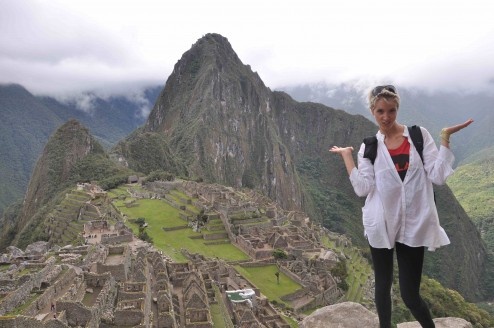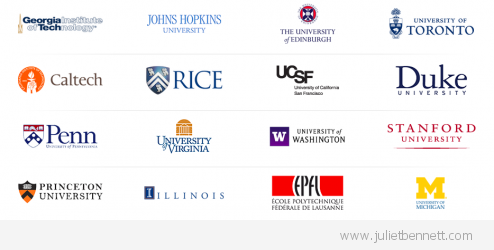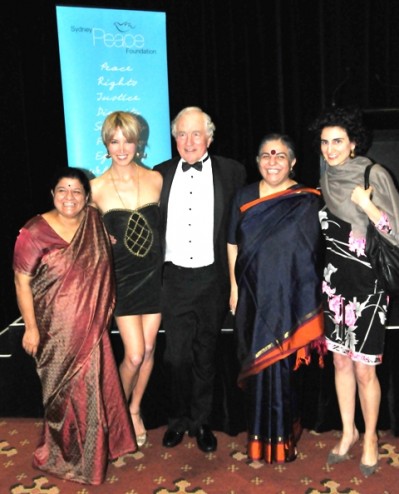 Last week I wrote about the gap between school and life-there-after, and I gather from the feedback quite a few of you agree.. Well today I’m going to write about some other gaps in our society’s distribution of knowledge that I’m sure many of you have noticed:
Last week I wrote about the gap between school and life-there-after, and I gather from the feedback quite a few of you agree.. Well today I’m going to write about some other gaps in our society’s distribution of knowledge that I’m sure many of you have noticed:
1. A gap between knowledge within the university and the rest of the world.
Deep and wonderful ideas that could inspire and improve the lives of many seem to get lost in the theoretical and abstract language, meticulous referencing and practically incomprehensible vocabulary and word games of the world of academia.
Not that these words and rules don’t have their purpose. I appreciate the ability to find a know exactly where an idea has come from, to know that the right person is getting their deserved credit and that the ideas being discussed have a history as opposed to being pulled out of thin air. Even the complicated language has its use, and brings with it much satisfaction once you actually “get it,” (after numerous readings, google searches and flicking between pages.) The world of academia serves an important purpose but it’s not for the layman, and if the ideas are not translated into an everyday language their potential goes unrealised.
So that’s one gap that I’d like to see bridged a little more.
2. A gap between disciplines within university walls
Politics can get in the way of sharing ideas between disciplines within the university walls.
For example in a class about historiography (the study of the different ways history has been written) I learned that history and archaeology rarely talk. The former looks at written stories, and the latter makes guesses at stories behind objects. To me, these are two parts required to tell one and the same story of our collective past, joined not only with archeology but with biology and and cosmology and philosophy as well.
Many new “inter-disciplinary” opportunities are arising. Working in “Peace and Conflict Studies”, which is consciously an mixed-discplinary discpline, I feel lucky to be one of a growing number that are seeking to bridge this gap through cross-discipline conferences, cross-discipline research opportunities, and cross-discipline subjects that look at sociology, philosophy, psychology, political science and religious studies all from a peace vs violence lens.
3. A gap between the exclusive fundamentalist brands of religion and inclusive ones
I’ll take Fundamentalist Christianity as my example, noting that the general points may apply to fundamentalist and non-fundamentalist versions of other religions too. Fundamentalist Christians are brought up with the belief that either:
1. Their religion is completely, literally, absolutely true which means they better behave so they don’t be sent to hell; or,
2. Their religion is wrong, life is meaningless so they may as well steal, commit murder or just kill themselves. What’s the point in struggling through eighty years or so of life if when you die you end up in the same state of nothingness as everyone else?
It’s all or nothing. The bible is either all true, or it can be put out with the rubbish. But is the history, the books, and the ideas that religions are based upon really so black and white?
Does looking at religions in their historical context show, that as with any writing, the motivations of the writers, the limitations of their sources, and the limitations of our own interpretive techniques, render black and white as two ends of a continuum, with myriad grays and colours visible in between?
Might the writings that proved enlightening for a particular group of people at a particular point in time, contain more-than-literal meanings in the mythos and midrash that the writers used to convey these messages?
One result of this all or nothing – “we are saved, you are going to hell” – mentality, is that many people judge all religions on the rules and destructive exclusivity of the fundamentalist versions, and write-off religion altogether as a man-made power-hungry institution.
I think that if one goes back to the philosophical roots of the religions, reading the “holy books” in their intended historical context, filtering the words through today’s higher levels of post-slave and (in general) post-slaughter-the-enemy morality, and explores the ideas in combination with one’s own experience and our scientific understanding of the universe and evolution… well I think that in this combination, religion does have something to offer.
Fundamentalist versions of religions are not the mainstream, but it is from these extreme versions that many non-religious judge religious on. In Australia the largest Christian denominations are Catholics, Anglican and the Uniting Church, all who (except the “Sydney Anglicans”) are inclusive of other religions (ie believe all religions connect with the divine powers behind life), read the bible in historical context, and engage in interfaith dialogue (see: http://assembly.uca.org.au/rof/interfaith-dialogue).
I think that in order to bridge the gap between fundamentalism and non-fundamentalism, it is good for us to study the gray areas, and to comprehend the alternative interpretations and meanings for ourselves. This brings me to my next point:
4. The gap in distribution of knowledge about others’ religious traditions (without presenting them as “evil” and “wrong” – especially if you are brought up inside one religion, or atheist)
I think the cross over and sharing between different religious traditions is not encouraged enough. I also don’t think that the connection between religion and science doesn’t have to be explored as either/or, but both/and.
Why shouldn’t all religions learn from the connections that others have had with the divine powers at play behind life? Why would any be so arrogant to think they know it all and that, call it “God” or “Allah” or “The Great Unknown” wouldn’t reveal itself in different ways to different groups of people around the world?
Doesn’t it make sense that the nature of science would be to explain how the universe began and how we evolved, and religion and philosophy to contemplate why and what is good or bad about the various ways we can use this gift?
Even if the expansion of the universe is a completely random event, the fact that we exist in a state that is able to contemplate our own existence is pretty fantastic. For me the magic of life the whole evolutionary process in the realm of divine awe. Our psyche’s, our conscious and unconscious, and the relationship between my unconscious and your unconscious, is pretty amazing.
Just because we can put some names and describe the process of one particle becoming two doesn’t negate the spark of magic that this process involves. And from two particles, into atoms, into life forms, and into planets and into you and me… how can we not think “wow”!
Who is to say that science doesn’t put into words the processes that a macrocosm we personify and call “God” sets in motion? Not a man in the sky, but a live and conscious universe made up of smaller conscious beings including you and me? I don’t see the incompatibility between religion and science, I really don’t. This, again, leads to another gap:
5. A gap in terminology to describe non-religious people who still believe in “something”
I believe this is a big gap in our language – a name for the large and growing number of people who have rejected religion on moral grounds, and hence hesitate to identify with any particular religion however who also don’t consider themselves atheist, or even agnostic.
A name for (what seems to me to be) a growing majority of educated people who are happy to accept the unknowns, and still think themselves as something beyond the boundaries of their own skin and short lives.
This group doesn’t seem to feel a need to name it, to join any institution that tries to gain power over them from it, and who allow their intuitive senses to connect to the mysterious energies at play and use this connection (via meditation, prayer, intentions) to benefit their or other’s lives.
Drawn to philosophical ideas like Resolution Theory in the book Shantaram, Taoist notions of good and evil being two sides of the same coin, and what I am learning about in my studies of Panentheism and Process Theology. As you can probably tell, this is me. I like the word Panentheists – the belief that everything is inside “God” – that is, our universe is a macrocosm with a similar relationship to us, as we have to the organs and cells that make up our body.
5. A gap between the knowledge distributed to rich and the knowledge distributed to poor
Finally I just want to mention the gap in knowledge distributed to rich and poor, as I reflect on how education is used to keep the poor poor and make the rich richer.
Bridging the gaps…
The ability to bridge the above five gaps, I think, lies in the hands of those with power: religious authorities, governments, media, legal institutions, and economic regulators.
Like every idea I explore lately, particularly in relation to distribution of knowledge and hence control of power, I return to The Pyramid. That power-hungry annoying big monster pyramid that gets in the way of all my idealism. But more about these gaps and bridges and using the pyramid for good and not evil, some other day.
Photo: Machu Picchu, the “Lost city of the Incas” so high up in the mountains of Peru… just one example of the ingenuity of mankind. December 2008.

 Last week I wrote about the gap between school and life-there-after, and I gather from the feedback quite a few of you agree.. Well today I’m going to write about some other gaps in our society’s distribution of knowledge that I’m sure many of you have noticed:
Last week I wrote about the gap between school and life-there-after, and I gather from the feedback quite a few of you agree.. Well today I’m going to write about some other gaps in our society’s distribution of knowledge that I’m sure many of you have noticed: Does school prepare us for life in the real world? Is knowledge passed from academia to public spheres? Are we learning from the past, or do we continue to make the same mistakes? How well do we really understand ourselves and others in our geopolitical, social, and historical context?
Does school prepare us for life in the real world? Is knowledge passed from academia to public spheres? Are we learning from the past, or do we continue to make the same mistakes? How well do we really understand ourselves and others in our geopolitical, social, and historical context?